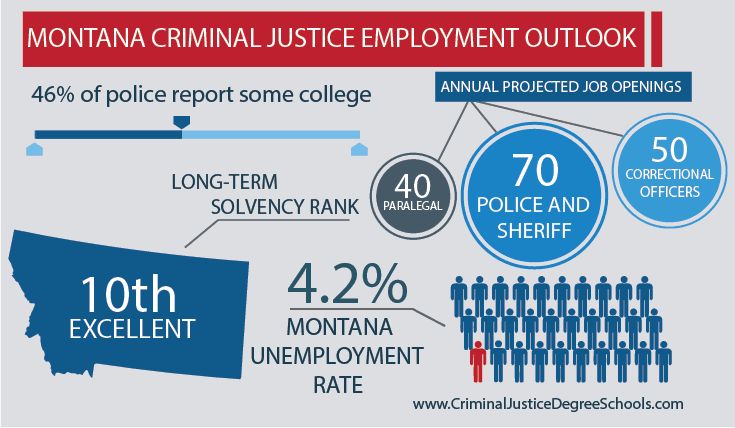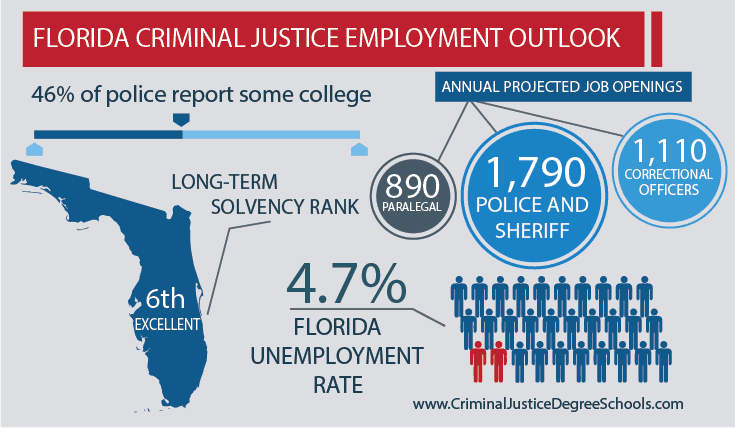
Fish and Game Warden Degree
Are you ready to find a school that's aligned with your interests?
A wildlife degree or fish and game warden degree can lead to a unique and exciting career that bridges the gap between law enforcement and environmental stewardship. Fish and game warden programs are a balance between law and conservation enforcement practices, administrative law, and wildlife biology. The field of wildlife protection and enforcement is somewhat specialized and is in need of people who understand and can respond to its unique demands. A wildlife degree brings future environmental professionals closer to nature, which can be an exciting experience. The median salary for fish and game wardens was $56,410 in 2017.1,2 To work in this field, candidates should have at least a bachelor's degree.1,2
Did you know? Game wardens help ensure that wildlife populations stay within normal limits by assisting biologists in determining season dates and bag limits. They may also encourage private landowners to allow hunters and fishers to harvest surplus wildlife.
Featured Online Programs
Explore program formats, transfer requirements, financial aid packages, and more by contacting the schools below.
Fish and Game Warden Training and Courses
Wildlife degrees and fish and game warden degrees are fairly specialized. Due to the applied nature of the coursework, online programs are rare. Certificate programs are available in associated areas, but two-year associate's degrees and four-year bachelor's degrees in these fields are a standard course plan for individuals seeking careers in the wildlife enforcement arena.
Fish and game warden programs may have a strong focus in wildlife biology, which also involves principles from the fields of chemistry, zoology, microbiology, and some upper-level math (e.g. statistics). Wildlife degree plans tend to share similarities, implementing aspects of environmental studies. This may include courses in meteorology, hydrology, and geology. Both wildlife programs and fish and game warden programs will also likely include study in administrative law and natural resources law.
Examples of common courses found in a fish and game degree include:
- Introduction to Aquaculture
- Animal Behavior
- Evolutionary Biology
- Ecology of Natural Resources
- Ecotoxicology
- Field Orientation & Training
- Fisheries Management
- Contemporary Animal Conservation Issues
- Management of Wildlife Habitat
- Conservation Decision-Making
Traditional Fish and Game Warden Degree Programs

University of Georgia (Athens, GA)
For students interested in a scientific perspective on fish and game, the Warnell School of Forestry and Natural Resources at the University of Georgia offers an undergraduate degree in Fisheries & Wildlife with specializations in Aquatic Sciences, Pre-Vet Wildlife Sciences, and Wildlife Sciences. Students in all programs benefit from the university's extensive field training and internships to help supplement learning from the in-class course requirements. In the wildlife program, students prepare for careers in wildlife biology whereas the pre-vet program meets the requirements for the university's veterinary degree with a greater emphasis on animal behavior and physiology. All degree programs require students to complete the university's core curriculum as well as courses in biology, chemistry, and English. Students can start the program in either the fall or spring terms.

Michigan State University (East Lansing, MI)
The Department of Fisheries and Wildlife at Michigan State University offers a Bachelor of Science degree in Fisheries and Wildlife with six possible concentrations: Conservation Biology, Fisheries Biology and Management, Wildlife Biology and Management, Water Science, Fish and Wildlife Disease Ecology and Management, and Pre-Veterinary Medicine. The degree requires 120 credits of study, including biology, chemistry, earth science, and math. Each concentration has a different number of required courses within the required 120 credits, ranging from 24 to 40. Students benefit from faculty members with expertise in many different aspects of fish and wildlife management and can be involved with research projects in the United States or further abroad, such as China and Malawi. Study abroad programs are also offered during March break, winter break, and the summer holidays.

Montana State University (Bozeman, MT)
Montana State University offers graduate degrees in Fish and Wildlife Management at the master's and PhD levels. Both programs have a research component and require students to complete a thesis or dissertation. The Master of Science degree in Fish and Wildlife Management is designed for students that wish to learn about and research a specific practice issue. The program requires 30 credits and 20 credits must be from coursework. Master's degree graduates may wish to work in the field or pursue a research career by completing the PhD program. The PhD program requires at least 60 credits. Master's work may be applied up to 30 credits, with the remaining work completed at the doctoral level. Graduates with extensive research experience may find work in different government departments or in university settings.
Online Fish and Game Warden Degree Programs

University of Florida (Gainesville, FL)
After completing an undergraduate degree, an online certificate is one way to continue learning or specializing within the industry. The School of Forest Resources & Conservation offers many certificate programs related to fish and wildlife fully online. These programs have fewer course and research requirements than a typical graduate degree program. Courses can be taken at any pace including full-time and part-time and can be very affordable as out-of-state students pay the in-state tuition rate. Certificate programs related to fish and wildlife management include Aquaculture & Fish Health, Ecological Restoration, and Quantitative Fisheries Science. Each certificate comprises 15 credits, which students can transfer to a graduate degree program in the future if they choose. University of Florida offers a related Master of Fisheries & Aquatic Science graduate degree fully online as well.

Duke University (Durham, NC)
The Master of Environmental Management at Duke University is a professional program for individuals already working in the sector. The program takes two years of study to complete and includes coursework from environmental studies, engineering, policy, and business to help graduates gain knowledge that can be applied to real-world situations. While the majority of the coursework is completed online, students are required to attend four on-campus sessions at the main campus in North Carolina and one special visit to Washington DC to supplement online courses and meet the faculty and their fellow classmates. The online course format requires students to "attend classes" at set times during the week by logging into the course management site. Utilizing webcams during these classes helps faculty develop relationships with students and encourages discussion.
Fish and Game Warden Job Description
Individuals with wildlife degrees and those who have completed fish and game warden training will be prepared to work for state or federal agencies in the fields of wildlife management and protection or game enforcement. Undergraduate degree holders may work in field technician positions gathering data, tracking animal and aquatic behavior and populations, and interacting with the public. Graduate degree holders may work in management positions, lead research projects, or analyze and inform conservation policies. Fish and game wardens should not only be interested in working nature with animals, but also sharing information with the public and developing sustainable conservation strategies. According to the Bureau of Labor Statistics, approximately 85% of fish and game wardens work for state departments compared to 15% working for local governments.1
Related Jobs
A fish and game warden degree may help students work towards related careers like:
- Conservation Officer
- Ecology Technician
- Fire Logistics Dispatcher
- Fish and Game Warden
- Fish and Wildlife Records Administrator
- Park Interpreter
- Park Ranger
- Range Technician
- United States Park Police
- Wildland Firefighter
Fish and Game Warden Professional Certification
There is no specific certification required for fish and game wardens; however, many individuals may need to complete outdoors or outdoor safety training required by some government departments. Fish and game wardens in many jurisdictions must be sworn law enforcement officers, which requires completing state and/or local police training. Some professional organizations offer related certifications that may be of interest to those looking to work in this field, such as the National Registry of Environmental Professionals.
Featured Online Programs
Explore program formats, transfer requirements, financial aid packages, and more by contacting the schools below.
Fish and Game Warden Salary and Job Outlook
Fish and game wardens earned a median salary of $56,410 in 2017, according to the Bureau of Labor Statistics; however, the average salary varies by state.1 Professionals in Illinois and Iowa earned the highest salaries by state, at $88,120 and $81,960 respectively.1. Fish and game warden positions are projected to grow by 2 to 4% through 2026.2 Graduates may also pursue careers as forest and conservation technicians; forest and conservation workers; park naturalists; or conservation scientists. Salaries for these positions range between $27,650 and $61,480 per year, depending on education, job title, and duties.3,4 Forest and conservation worker positions are projected to decline by about 2% through 2026, while conservation scientists are projected to grow by 5 to 9%.3,4
Additional Resources
- US Fish & Wildlife Service: Federal association responsible for protecting and managing conservation efforts across the country.
- USA Jobs: Fish & Wildlife Service: A government-run job bank website with postings from across the nation.
- Wildlife Conservation Society: A political advocacy organization managing several conservation projects around the world.
What is the difference between a wildlife conservation degree and a wildlife biology degree?
Both degrees may be useful to individuals pursuing a career as a fish and game warden yet they have slightly different focuses. A wildlife conservation degree includes coursework on aquatic and animal behavior as well as best practices in environmental conservation and sustainability. A wildlife biology degree is more heavily focused on understanding animal behavior, anatomy, disease, and physiology.
Do you need a master's degree in fish and game management to be employed as a fish and game warden?
No. Undergraduate degrees are acceptable to start an entry-level job in the sector, although a master's degree may help you gain leadership or management positions with relevant work experience.
References:
1. Bureau of Labor Statistics, Fish and Game Wardens: https://www.bls.gov/oes/current/oes333031.htm
2. O*NET OnLine, Fish and Game Wardens: https://www.onetonline.org/link/summary/33-3031.00
3. O*NET OnLine, Forest and Conservation Workers: https://www.onetonline.org/link/summary/45-4011.00
4. O*NET OnLine, Conservation Scientists: https://www.onetonline.org/link/summary/19-1031.00
Latest Posts
Take the next step toward your future.
Discover programs you’re interested in and take charge of your education.